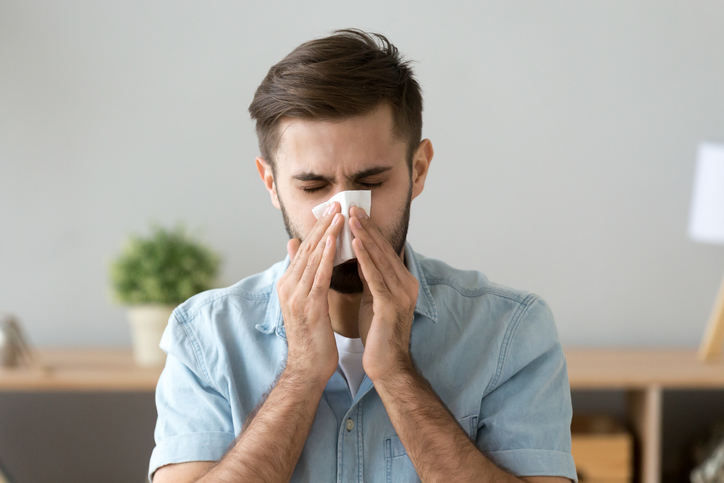Wednesday, December 11, 2019
By John Voket As the weather cools down and folks tend to head indoors for the winter, allergy sufferers might not find the respite they’re expecting. One reason, according to Dr. John McKeon, chief executive officer of Allergy Standards Ltd., is poor indoor air quality, which can be two to five times worse than outdoor air.
As the weather cools down and folks tend to head indoors for the winter, allergy sufferers might not find the respite they’re expecting. One reason, according to Dr. John McKeon, chief executive officer of Allergy Standards Ltd., is poor indoor air quality, which can be two to five times worse than outdoor air.To keep winter allergies at bay, Dr. McKeon says it’s important to take steps to improve one’s indoor air quality, and various filters can be an excellent way to improve air quality, indoors and on the go.
There are a range of different types of filtration systems — so which one is best for you?
Electrostatic filters use an electric charge to stick the particles to metal plates. As the particles are drawn into the filter, they are given a charge, which makes them stick to a positively charged metal plate that you clean regularly.
Activated carbon filters are used to remove odors and volatile organic compounds from the air, but do not have any specific particle removal efficacy.
Media-based filters are basically a solid material with holes that allow air to pass through, but will prevent certain sizes of particles passing through. Media-based filters are used in vacuum cleaners, air cleaners, HVAC systems etc. - and Dr. McKeon says the type of material that is used in these filters will affect its price and performance.
Here's a breakdown:
- Fiberglass is one of the most affordable types of media-based filter and is disposable. These types of filters mainly protect the air cleaning device from large particulates, however, rather than filtering out contaminants.
- Pleated filters are generally made from cotton or polyester — a higher number of pleats will result in a greater surface area and greater filtering performance.
- Washable filters can save money, but it takes time to wash the filter and ensure it is completely dry prior to use. Replacing a filter while damp may lead to mold and bacterial growth
- HEPA filters are most appropriate for people with allergies as they have the capability to remove small particles with high efficiency. HEPA filters can remove in excess of 99.97 percent of particles.
Dr. McKeon says no matter which filter you choose, maintenance of indoor air quality is essential for a healthy home.
RISMedia welcomes your questions and comments. Send your e-mail to: realestatemagazinefeedback@rismedia.com


